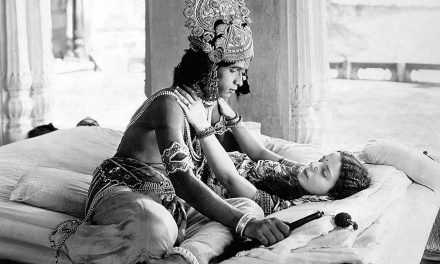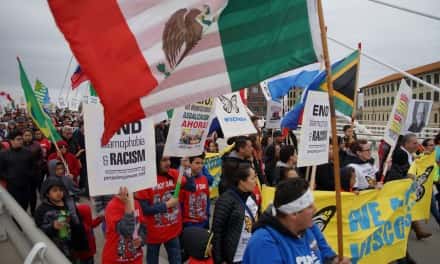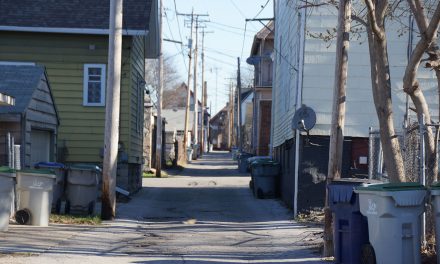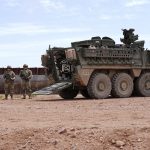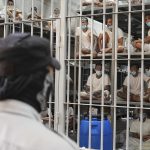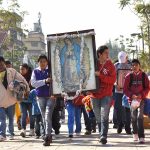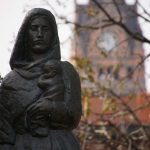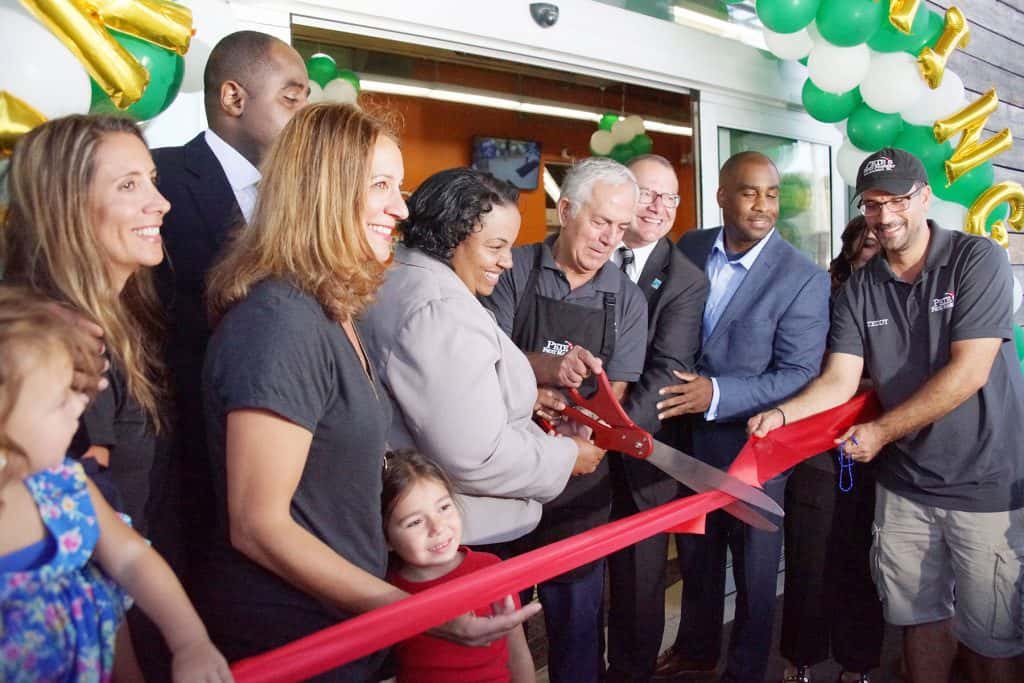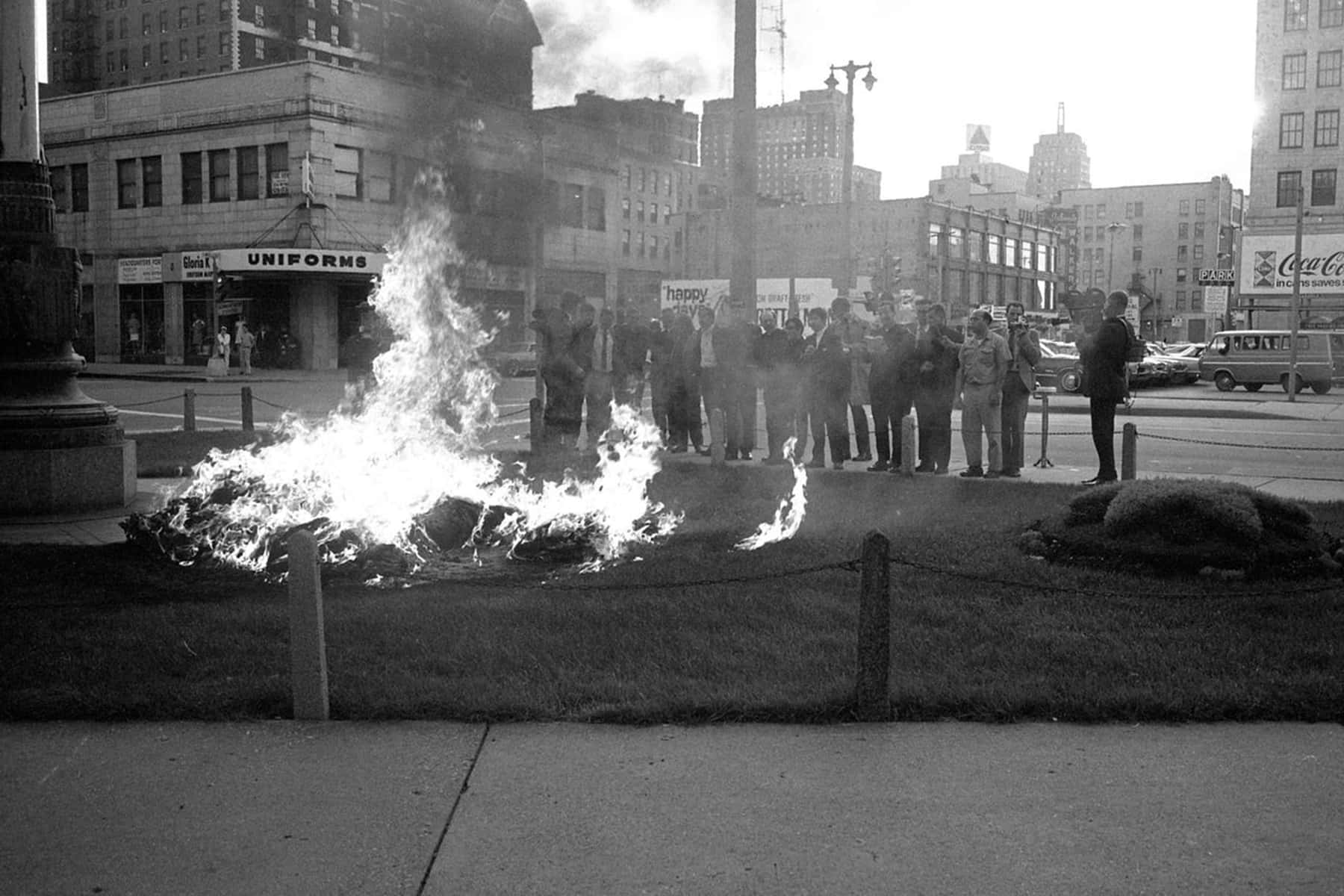
On September 24, 1968, 14 people removed 10,000 draft files from the Milwaukee draft board and burned them with home-made napalm near a memorial to veterans, in front of what was then known as the Brumder Building, now renamed as the Germania Building, on West Wells Street.
Before the cards were stolen, a graduate student named Nicholas Riddell caused a diversion. On September 22, 1968, Riddell led a takeover of the Cathedral of St. John the Evangelist while services were in progress.
The takeover caused a police response that overwhelmed the resources of the Milwaukee Police Department. The church takeover allowed the members of the Milwaukee Fourteen to break into the Selective Service building on Wells Street unbeknownst to the police.
As the draft cards burned, the protestors sang hymns and peacefully waited for the Milwaukee Police Department. After their arrested, Father James Groppi became the co-chair of the Milwaukee Fourteen Defense Committee.
Howard Zinn testified at their trial, and later wrote about it in his book A Power Governments Cannot Suppress:
I was called to testify in the case of the Milwaukee Fourteen, a group of priests, nuns, and laypeople who had gone into a draft board, taken thousands of its documents, and burned them in a symbolic protest against the war in Vietnam.
As a historian of social movements, I was asked to discuss the role of civil disobedience in American history. The judge was clearly uneasy, but he allowed me to answer the question.
I spoke of the principles of the Declaration of Independence, and of its insistence that when a government becomes destructive of basic human rights, it is the duty of the people to ‘alter or abolish it.’ I began to talk about Henry David Thoreau and his decision to break the law in protest against the U.S. invasion of Mexico in 1846.
At this point, Judge Larsen interrupted. He pounded his gavel and said: ‘You can’t discuss that. That is getting to the heart of the matter.’
Every member of the Milwaukee Fourteen was tried for burglary and arson to property. In May of 1969, eight months after the protest, twelve of the fourteen were found guilty, while the two remaining individuals requested separate trials.
A federal judge threw out a separate federal case against twelve of the fourteen men, explaining that media coverage surrounding the event would prevent an impartial jury. But all members of the Milwaukee Fourteen did end up serving time in prison, with varying sentences. One of the members, Michael Cullen, was deported to his native Ireland in 1973 due to his involvement in the anti-war protest.
Of the fourteen men involved in the protest, four were from Milwaukee, while the rest were from other parts of the United States. Five of the fourteen were Catholic priests and one was a Catholic brother. The group included Father James Harney, Father Anthony Mullaney, Father Alfred Janicke, Father Robert Cunnane, Brother Basil O’Leary, John Higgenbotham, Don Cotton, James Forest, Jerry Gardner, Doug Marvy, Fred Ogile, Larry Rosenbaugh, Robert Graf, and Michael Cullen.
Sеаn О’Fаrrеll and the Zіnn Еducаtion Prоjеct
Lynn HоwеII via Milwaukee Public Library


